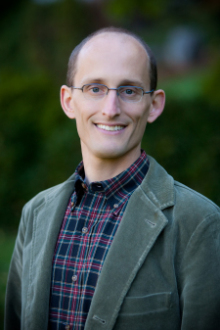While everyone’s healing journey is unique, perhaps you can identify with some of these experiences:
- You were recently diagnosed with cancer and your oncologist has prescribed a course of treatment. You’re taking some time to think about his recommendations, and you’re wondering if there are other treatment options to consider.
- You’re looking into complementary and alternative treatments and wondering how nutrition, herbs, acupuncture, stress reduction, or other mind-body practices might help you to heal. But, you’re feeling confused by the mountains of information available on these therapies and finding it hard to know what’s really effective.
- You’re worried about the potential side effects of conventional therapies. How will you heal from surgery? Can you prevent radiation burns? Is there a way to survive chemotherapy without feeling awful? And how can you maintain your stamina in order to work and spend time with loved ones, even as you undergo treatment?
- You’re wondering how your other health conditions will figure into cancer treatment. Perhaps you also have high blood pressure, digestive issues or menopausal concerns, or you struggle with anxiety, depression or insomnia. Is it possible to be a whole person instead of a collection of symptoms that gets treated separately by different doctors and multiple medications?
- You’ve successfully made it through treatment, and now you’re a cancer survivor. Your oncologist is suggesting periodic follow-up testing to monitor for signs of recurrence. But you want to do more than sit idly by and wait. Perhaps you’re wondering how you can address the underlying causes of your cancer to actively prevent a recurrence?
- You’ve never had cancer, but you know you’re at increased risk because of family history or environmental exposures. You’d like to reduce your risk, so that you’ll never need to step foot in an oncologist’s office.
- You have a friend or family member who is struggling through the rigors of cancer treatment. You’ve been feeling really depleted from wearing so many hats—caregiver, friend, spouse, and perhaps breadwinner, too. You’re feeling frazzled and at your wits’ end. How do you get the support you need to keep going?
If any of those situations sound familiar, I can probably help you. I commonly help children, adolescents, and adults with these types of cancers:
- Brain cancer
- Breast Cancer
- Colorectal cancer
- Endometrial cancer
- Head and Neck cancer
- Leukemia
- Lung cancer
- Lymphoma
- Multiple myeloma
- Ovarian cancer
- Pancreatic cancer
- Prostate cancer
- Sarcoma
- Skin cancer, including melanoma
- Thyroid cancer
I also treat other difficult illnesses that are resistant to conventional care, especially autoimmune, cardiovascular, gastrointestinal, and hormonal conditions. If you don’t see your specific cancer type listed above, please don’t be discouraged. These cancer types are simply the ones I see most commonly.
Are you wondering if my approach to treatment will be a good fit for you?
It very likely will be if you share these values:
- You think that communication with your doctor and the ability to ask questions, consider options, and make individualized choices is not just a luxury, but essential;
- You want to engage complementary therapies that are backed by sound scientific evidence or, when that is unavailable, rational understanding of the cancer process and a proven track record of successful outcomes;
- You believe that, just as it’s impossible to forge a lasting peace by waging war, there’s also more to successful cancer treatment than levying a potent arsenal of toxic therapies on a tumor;
- You seek a collaborative model of care where conventional and complementary approaches to treatment are integrated for the most powerful effect;
- You have faith in your innate ability to heal, even if that faith has been deeply shaken by a diagnosis of cancer or some other serious illness.
It’s really important to me that you have the benefit of a cancer treatment plan that meets your needs. Feel free to contact me if you have questions about your care; I’d be glad to find some time to talk with you. Just like in The Wizard of Oz, a difficult voyage is made easier when it’s shared with other travelers. Please don’t hesitate to ask for help.
You may also like to visit How it Works to learn a bit more about what it’s like to have me on your team and how I approach the treatment of cancer and other chronic illnesses.




